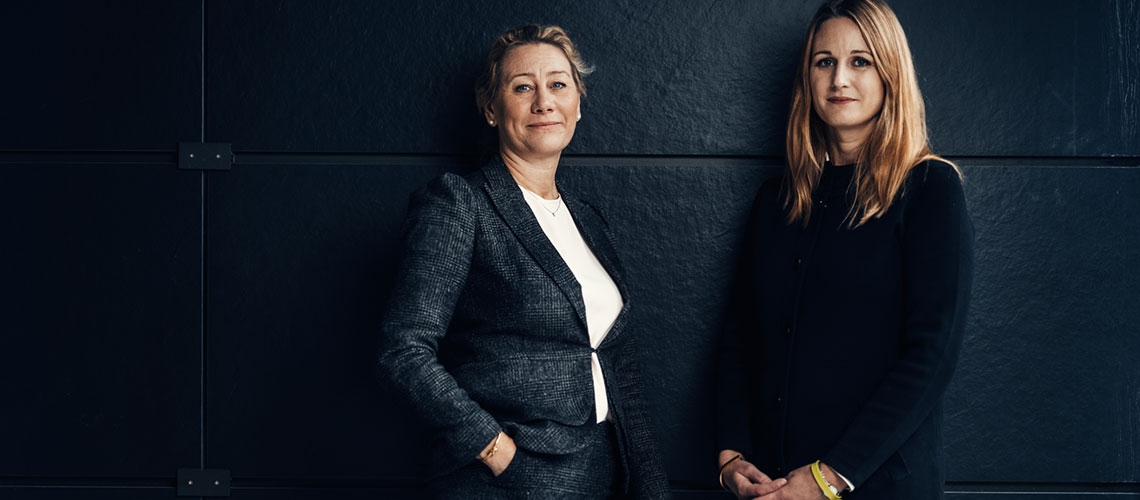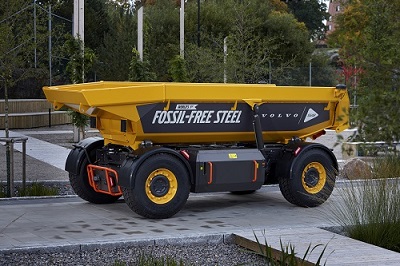
Published
- Financing
Towards net zero with fossil-free steel
Our world is built from steel but as steel production accounts for about 7 percent of the global CO2 emissions, a carbon-free society needs new ways of making steel. A Swedish joint venture named Hybrit may hold the key by replacing a steel-making method that has been used for a thousand years.
Modern society was built with steel, still one of the world’s most versatile and recyclable materials. At the same time, steel production accounts for 7 percent of global CO2 emissions, making it one of the highest carbon dioxide-emitting industries. The decarbonisation of the steel industry would consequently have a huge impact on the environment and enable other carbon-intensive industries worldwide to follow suit. There is, for example, a huge interest in making a changeover to fossil-free processes in the cement and petrochemical industries as well.
Sweden, where the steel industry accounts for about 10 percent of the country’s CO2 emissions, has taken the first steps toward a fossil-free value chain from mine to steel. Hybrit, which stands for “hydrogen breakthrough ironmaking technology,” is a joint venture between the steel company SSAB, the mining company LKAB and the power company Vattenfall. The goal is to replace the coking coal used in the traditional furnace heating process with a direct reduction process based on hydrogen produced with fossil-free electricity.
The road map is tight and SSAB plans to offer fossil-free steel on the market in 2026, according to Christina Friborg, Head of Sustainability at SSAB. “Steel is used everywhere in society. We foresee a large demand for fossil-free steel, for example from automotive companies and their suppliers as well as the construction sector. The interest in fossil-free steel seems to be bigger than the supply, and we will have competition ahead. Therefore, we are happy that we have been able to deliver the world’s first steel made using the fossil-free direct reduction method with hydrogen gas to our customer who has been able to build the first vehicle from that steel.”
Worldwide first
The first batch of fossil-free steel left SSAB’s pilot plant in Northern Sweden in August and Volvo Construction Equipment (Volvo CE) became the first machinery manufacturer in the world to build a hauler, TA15, from fossil-free steel. TA15 is part of the electric and autonomous transport solution from Volvo Autonomous Solutions for quarries and industrial material handling applications, named TARA. The fossil-free steel perfectly matches the sustainability profile of TA15.

At Volvo CE, Tora Leifland, Director Responsible Business, praises the Hybrit initiative. “Collaborations such as this are key to our decarbonization strategy, which includes having a carbon-neutral value chain by 2040.”
Volvo Autonomous Solutions plans on the first commercial delivery of the TARA transport system by the end of 2022, followed by a ramp-up to selected markets. “So far, the biggest demand for electric and carbon-free solutions comes from Europe, driven in part by government incentives and emissions-free procurement targets,” adds Leifland.
Export credits have a huge role to play in financing the transition in developing countries across the globe, particularly as carbon-free, electric equipment tends to come with a higher price tag initially.
While the technology behind transitional tech would cost more before economies of scale set in, the price of emissions is also rising rapidly, potentially outweighing some of the cost disadvantage, Friborg points out. “Currently, a tonne of CO2 emissions costs 80 euros, and it’s increasing all the time. Higher CO2-emission prices combined with proposed carbon tariffs (CBAM) contribute to making fossil-free steel more attractive.”
Ideal position
At EKN, Marie Aglert, Head of Business Area Large Corporates points to a good collaboration between EKN and successful exporters like SSAB and Volvo CE. “The exponential growth of the Nordics’ climate-friendly industry, ranging from steel and mining to shipping and power generation, places the region in an ideal position to capitalise on global transitional investment.”
The need for investments in infrastructure that support electric transports in both developed and developing countries is huge, and another area where export credits can play a role as facilitator, according to Leifland. “The lack of charging infrastructure is one of the biggest obstacles to fossil-free transportation and construction. At Volvo CE, we would like to see the ECAs play a bigger role in promoting renewable energy, sustainable infrastructure and mining.”
To be sure, the Nordic region’s export finance system is undergoing its own transition, launching a raft of restructurings, initiatives and green export finance solutions to ensure that Nordic exporters retain a competitive edge in foreign markets, while also supporting green investment at home.
Helps ESG screening
Volvo CE and SSAB appreciate the fact that EKN works actively together with exporters and financiers, to implement a tough sustainability agenda. “EKN helps screen projects for ESG issues, which helps us in our sustainability efforts and raise ESG issues on the agenda of our sales organisation. Today, everyone perceives how sustainability is as important as credit risk,” says Friborg.
Volvo CE’s Leifland concurs and adds: “Volvo CE works with EKN in complex markets, which is very valuable and lets us gain a competitive edge.”
When the first delivery of fossil-free steel was presented, SSAB CEO Martin Lindqvist commented: “When we started Hybrit five years ago, a lot of people didn’t believe in the idea, which requires that you replace a production method that has worked for a thousand years. Now we have proved that it’s possible.”
Could this be the next industrial revolution?
